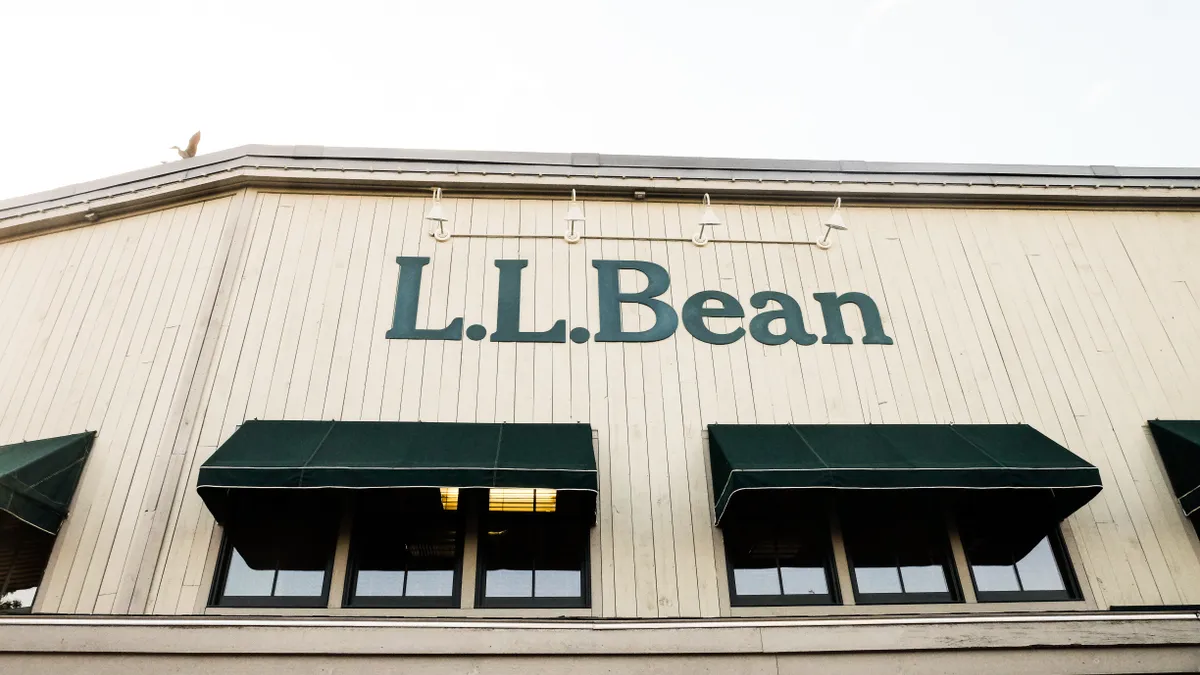Dive Brief:
- L.L. Bean plans to close its store at Macerich's Tysons Corner Center in McLean, Virginia, on Jan. 17, the apparel seller said. The store, open since 2001, was among the mall's anchors, according to Macerich.
- "We explored many options with our landlord to remain at Tysons Corner Center, but we were unable to reach agreement in a way that would allow us to best serve our customers moving forward," an L.L. Bean spokesperson told Retail Dive in an email.
- The apparel seller is searching for a new location in the area. For now it is redirecting customers to its location in Bethesda, Maryland. The apparel seller operates 57 stores in all, including Tysons Corner, the majority of which are in the Northeast, according to its website.
Dive Insight:
While 2020's tidal wave of store closures by ailing and healthy retailers alike has receded, the relationship between store operators and landlords is under continual renegotiation as the pandemic and other structural changes reshape the industry.
The Tysons Corner store was L.L. Bean's only anchor at a Macerich mall, and the Northern Virginia mall is among the largest in Macerich's portfolio, according to the mall operator's filings. (Macerich owns 50% of Tysons Corner.) All told, L.L. Bean rents 75,000 square feet of space from Macerich.
As for Macerich, the real estate giant is a case study in the rebound both retailers and their landlords have enjoyed over the course of a year.
"Retailer demand is at a level we have not seen since 2015," Macerich CEO Thomas O'Hern told analysts in November, according to a Seeking Alpha transcript. "We expect traffic to continue to increase. The current level is over 95% of the 2019 traffic levels." O'Hern added that leasing volume for the full year exceeded 2019 levels and was at its highest point since 2015.
The executive called out strong consumer demand and a dramatic slowdown in retail bankruptcies, which have typically led to mass store closures, including department store anchors in the cases of J.C. Penney and others.
Bankruptcy gives retailers legal tools and leverage to exit store leases. But large numbers of retailers, of all stripes and financial profiles, shuttered stores and renegotiated leases during the early stages of the COVID-19 crisis.
The pandemic tested the relationship between retailers and landlords, as the tenants closed stores temporarily and saw sluggish foot traffic even after opening for most of 2020. With revenue under steep pressures, retailers skipped, delayed or reduced rent payments — sometimes by agreement with their landlords, sometimes not. The pain made its way up the chain, and some mall owners, including CBL and PREIT, filed for bankruptcy.
With traffic, leasing and rent revenue rebounding, mall owners have made a comeback along with the retail industry, which could continue into the new year. Jefferies analysts recently noted that for REITs, "A continuation of above-trend leasing activity, healthier retailers and positive consumer demand bodes well for 2022."














